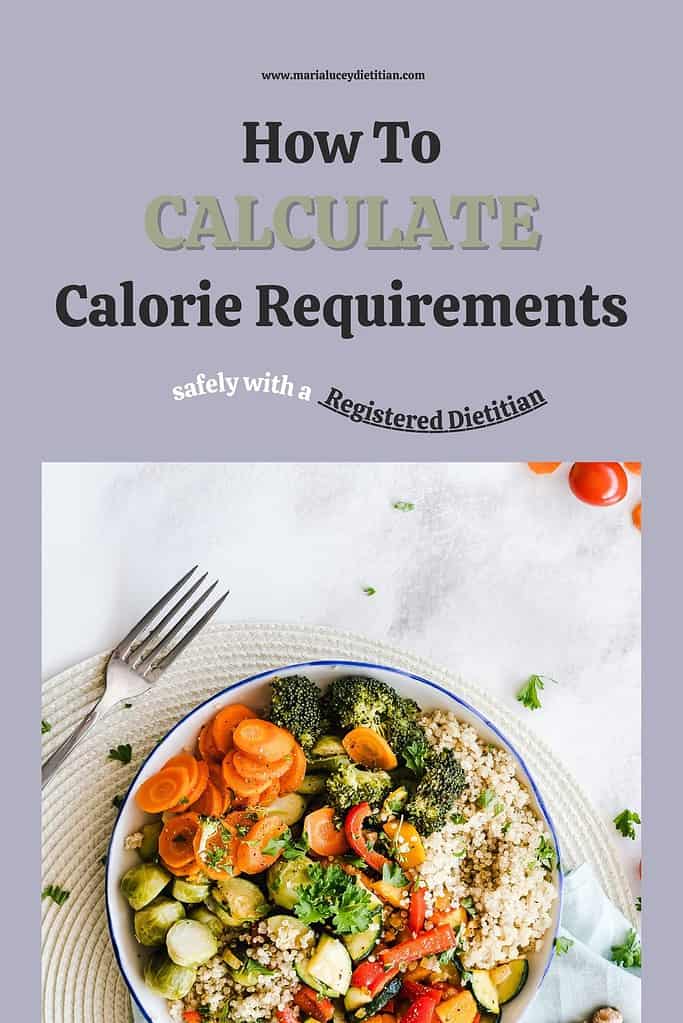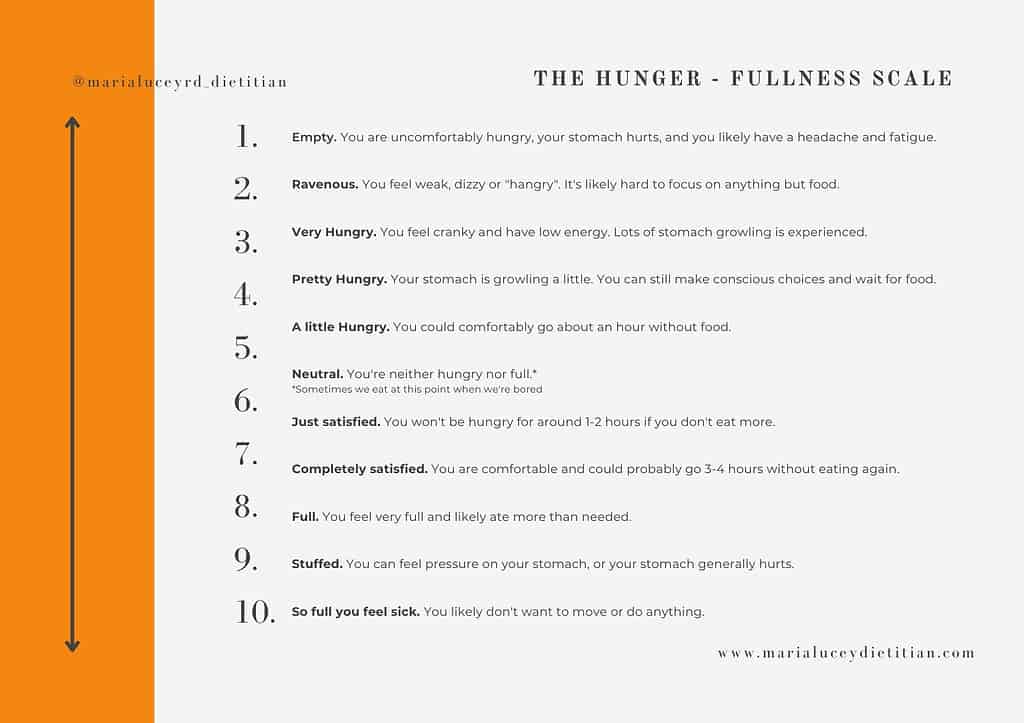Of all the questions I get asked as a dietitian, the importance of calories usually tops the list. And although calorie counting can be highly inaccurate, many people find it useful to have a rough idea of their calorie needs at the beginning of a health journey.

This post is all about how to calculate your calorie needs.
The first thing to know about calorie requirements is that they're just estimates! Even when a dietitian calculates them for you, the standard approach is using equations that are all based on estimations. The most accurate way of measuring a person’s calorie requirements is through direct calorimetry, which measures the rate of heat loss using a calorimeter. However, this method is rarely used due to its complexity and cost.
Secondly, calorie counting is not for you if you have any history of disordered eating or a poor relationship with food and body image. Food is much more than just a number, and reducing it to just this can be triggering for some people. So please proceed with caution if you are considering counting calories.
What Are The Average Calorie Requirements For An Adult?
According to the FDA, 2,000 calories a day is a general guideline for nutrition advice. According to the NHS, the recommended daily calorie intake is between 2,000 and 2,500.
However, the reality is that there are many things that can impact your daily energy requirements…
Factors That Affect Your Calorie Intake:
Gender: Men typically have higher calorie needs than women, usually due to having more muscle mass, lower body fat, and greater height.
Size/Weight: The larger your body, the more calories will be required for it to function and move.
Physical activity: The more you move, the more energy you need. Exercise is mostly responsible for this, but small things like walking to work or having an active job can also have a considerable impact.
Illness: When recovering from illness, infection or injury, the body requires more energy than usual. So it’s important to eat well when this is the case.
Medical conditions: Certain diseases and medical conditions can increase a person’s daily energy requirements.
Body composition: Muscle requires more energy than body fat, so those who have more lean muscle mass usually have higher calorie requirements.
Environmental factors: Temperature can impact BMR as the body has to work harder to maintain its normal temperature, e.g. sweating in hot weather.
Hormones: Fluctuations in hormones can influence energy expenditure. For example, studies have found that during the luteal phase of the menstrual cycle, women can experience up to a 20% increase in their metabolic rate due to the increase in progesterone.
How To Calculate Your Daily Maintenance Calorie Intake
As I mentioned, the most accurate way to do this (direct calorimetry) is expensive and not accessible to most people. Instead, plenty of equations can calculate approximately how much energy the body needs. The best of these is the Mifflin-St. Jeor equation below.
Step 1: Calculate your BMR using the Mifflin-St. Jeor equation:
- Men: BMR = 10 x weight (kg) + 6.25 x height (cm) - 5 x age (years) + 5
- Women: BMR = 10 x weight (kg) + 6.25 x height (cm) - 5 x age (years) - 161
This equation calculates the approximate basal metabolic rate, or BMR, the number of calories your body requires at complete rest. So, if you lay in bed all day, this is the amount of energy that your body would still require to carry out basic functions.
Step 2: Multiply your BMR by a "Physical Activity factor." We call this a PAL. This will take into account your baseline calorie needs and add the calories needed for movement and physical activity.
PAL values
- Sedentary (little to no exercise): 1.2
- Lightly active (light exercise or sports 1-3 days a week): 1.375
- Moderately active (moderate exercise or sports 3-5 days a week): 1.55
- Very active (hard exercise or sports 6-7 days a week): 1.725
- Super active (very hard exercise and a physical job or training twice a day): 1.911
Now, you should have your maintenance calorie estimate! This in theory is the amount of calories you should be able to eat daily and maintain your weight. If you are looking to gain weight you would increase this slightly, or if you were looking to lose weight you would decrease this slightly.
But remember, these are all just estimates. Our bodies are very complex, and a simple math equation will never capture our uniqueness.
Instead of solely relying on calories as a guide to eating, I encourage clients to listen to their bodies' internal cues, i.e., signs of hunger and fullness. Using a hunger and fullness scale can be useful here.

Take home message
While calculating calorie requirements is based on relatively simple science, the truth is we’re not robots. Knowing your calorie requirements can be useful for supporting your health and fitness goals, but you don’t need to place too much importance on tracking every single calorie.
Focus on eating balanced meals most of the time rather than obsessing over exact calorie counts. What you do consistently over a long period matters most, so don’t stress too much if you go over or under too much on any single day.
Connect with Maria Lucey, RD!
Don’t forget to follow me on Instagram, YouTube, and Pinterest so you never miss a new recipe or blog post.
Recipes You May Enjoy:
- 💫The Original Baileys Cheesecake Recipe – Irish Cream No-Bake Cheesecake
- 💫Almond Butter Energy Balls Recipe
More about the author:
Hi there! My name is Maria, and I am a Registered Dietitian practising in Ireland and Bermuda. I have extensive experience in helping clients improve their health through the power of good nutrition. I hope you enjoyed this article. If you have any questions or concerns, please do not hesitate to contact me. Additionally, if there are nutrition topics or recipes you would like me to make in future posts, please let me know. I would be more than happy to help.
Stay happy and healthy 💚
Your Registered Dietitian
Maria xox
Check me out on YouTube!
🎥 Visit my YouTube Channel to learn more about my approach to eating and see many of my healthy recipes.





Leave a Reply